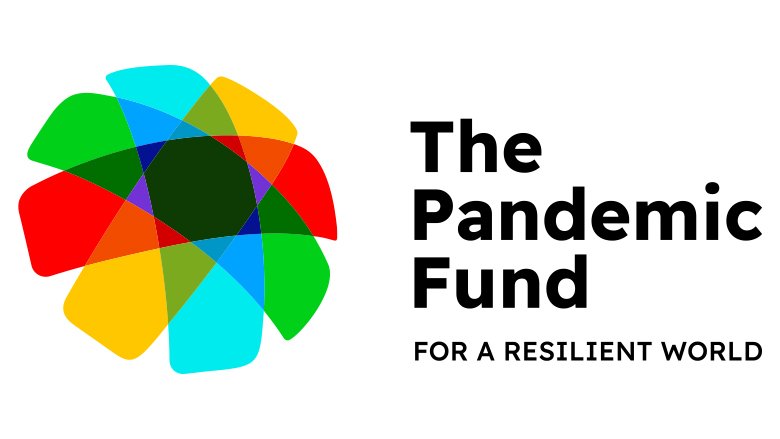This is one of 19 projects to which a grant was awarded by the Pandemic Fund under the First Call for Proposals. For information on the full set of projects supported by the First Call for Proposals, please refer to this press release.
Background
The Project seeks to strengthen response and preparedness for future health emergencies and pandemics, while recognizing the difficult context of security and economic restrictions in West Bank and Gaza. It is led by the Ministry of Health (MOH), in partnership with the Ministries of Agriculture (MOA) and Finance (MOF), and Environment Quality Authority (EQA), and four Implementing Entities (IEs) (FAO, UNICEF, World Bank, and WHO). The Pandemic Fund’s US$20 million grant is expected to bring an additional US$12 million in co-financing to strengthen key PPR capacities through a One Health approach. The Project draws on the strategic objectives of the most recent Health Sector Strategy, and the gaps identified in the latest State Party Self-Assessment Annual Report (SPAR), the Performance Veterinary Services (PVS) assessment, and the 2022 MOH- and World Bank-led Pandemic Preparedness and Health Systems Resilience Assessment.
Over the past three years in the West Bank and Gaza, humanitarian vulnerabilities have been exacerbated by the escalation of hostilities, mobility restrictions, and worsening economic conditions. This compounds public health risks and diverts efforts away from the development of and preparedness for health crisis management. The unique, intertwined issues of security, humanitarian vulnerabilities, and potential cross-border disease risks make pandemic PPR key priorities for the West Bank and Gaza.
Project objectives
The project is intended to close the critical gaps in surveillance, laboratory capacity, and human resources/governance/multi-sector coordination in order to support effective implementation of PPR in West Bank and Gaza’s context.
Implementation arrangements and key components
The Strengthening Pandemic Prevention, Preparedness, and Response in West Bank and Gaza Project will be managed by a PPR Steering Committee, with the MOH as the lead in coordination and decision-making. The proposed PPR Steering Committee will include all relevant partners for One Health including civil society organizations (CSOs). It will be the collective responsibility of the four Implementing Entities to periodically report progress to the PPR Steering Committee and to support a unified monitoring and evaluation system plan that includes a joint mid-term review and an end-term evaluation.
The grant will finance activities in five areas. Implementing Entity support is indicated under each component.
Developing surveillance capacities in relevant sectors. The project will enhance electronic surveillance using health information systems for timely and quality reporting of both human and animal health. This includes developing and implementing surveillance action plans (including antimicrobial resistance surveillance), technical guidance, and standard operating procedures; procuring/installing equipment; upgrading and scaling up applications for electronic disease notification; preparing and evaluating exercises for outbreak scenarios (FAO, WHO, World Bank).
Building laboratory capacity. This includes the development of tier-specific cross-sectoral diagnostic testing strategies, accompanied by external quality assurance; refurbishment of national health and veterinary laboratories; development of operating practices and protocols; procurement of vehicles, equipment, and supplies; implementation of biosafety and biosecurity measures; and supporting accreditation of national laboratories (FAO, WHO, World Bank).
Strengthening capacities for effective mobilization of outbreak response. This includes, among other activities, support to vaccine stock management, closure of gaps in the cold chain, procurement of PPE stocks and other relevant supplies; update of procedures for the use of prepositioned stocks; and development and implementation of cross-sectoral risk communication plans (UNICEF, World Bank).
Increasing workforce capacities. This includes the development and provision of competency-based training programs and continuing education for laboratory staff, health care workers, veterinarians, para-vets and other relevant staff from health, veterinarian, and environment sectors (all).
Strengthening intersectoral collaboration. This component will establish the One Health strategy and a cross-sectoral One Health platform, including promotion of the One Health approach through outreach activities and public awareness campaigns (all).
Expected outcomes
Aligned with the Pandemic Fund’s Results Framework, the Project ultimately aims to reduce the health, social and economic impact of pandemics in West Bank and Gaza by addressing critical gaps identified in PPR-related assessments. It is expected to improve SPAR and PVS scores by 20% by the end of the three-year project. Through the improvement of rapid characterization and confirmation of diseases and increased efficiency of laboratory systems to detect pathogens of epidemic potential, the Project will improve capacity to prevent, detect, and respond to outbreaks. Additionally, the Project is expected to strengthen readiness to respond with cross-sectoral collaboration by establishing mechanisms of coordination across sectors using the One Health approach. The Project is expected to incentivize additional PPR investments.
Key Financial Statistics
| Amount Approved (US$) | Total Co-financing (in kind & in cash) (US$) | Total Co-investment (in kind & in cash) (US$) |
| 20,000,000 | 11,958,282 | 25,085,000 |
For media inquiries: Anita Rozowska - arozowska@worldbankgroup.org
For general inquiries: the_pandemic_fund@worldbank.org

